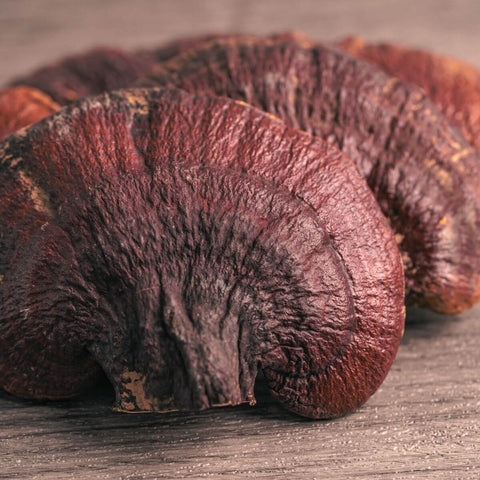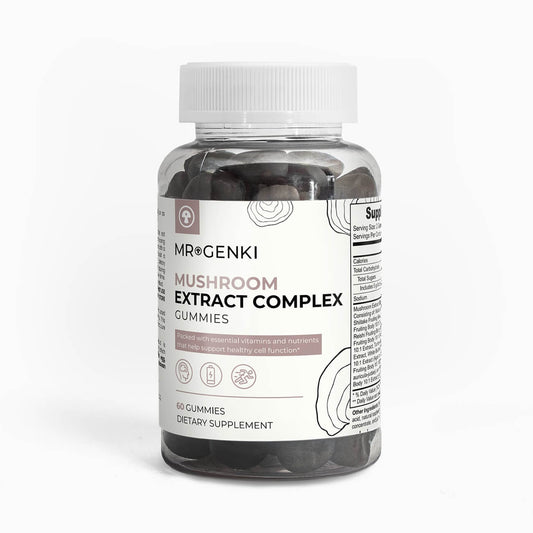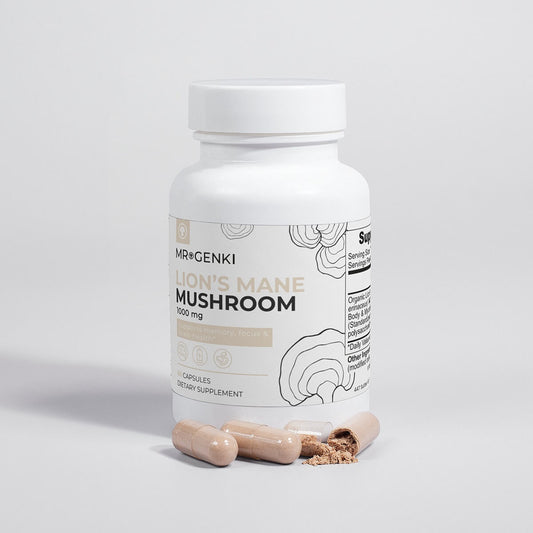Key Takeaways
| Chapter | Key Points |
|---|---|
| Reishi's Historical Use | Traditionally used for tranquility and mental wellness. |
| Sleep Benefits | Scientific studies show Reishi improves sleep quality. |
| Stress Relief | Known for reducing stress and anxiety. |
| Biochemical Action | Influences neurotransmitters and gut microbiota. |
| Practical Usage | Recommendations on consumption and dosage. |
| Safety Notes | Considerations for safe use. |
Struggling to get decent sleep?
Tired of staring at the ceiling while the clock ticks away?
You’re not alone.
Millions of people wrestle with restless nights, and that’s where Reishi mushroom steps in like a calming friend you didn’t know you needed.
Let’s unpack how this natural remedy could help you catch those elusive Z’s.

What is Reishi Mushroom?
If you’re new to the world of functional mushrooms, reishi is a standout.
Dubbed the "mushroom of immortality" in traditional Chinese medicine, it’s been around for thousands of years.
But we’re not here for history lessons.
We’re here because Reishi might just help you improve sleep without any harsh chemicals.
Reishi contains adaptogens, which help your body manage stress.
And stress? It’s the kryptonite of good sleep.
How Does Reishi Work as a Sleep Aid?
Here’s the deal:
Reishi interacts with your central nervous system, promoting relaxation and easing anxiety.
Key compounds like triterpenes and polysaccharides in reishi have been linked to:
- Reducing cortisol (stress hormone) levels
- Supporting a more stable mood
- Encouraging deeper, more restorative sleep
Think of it as hitting the "reset" button for your mind and body after a long day.

The Importance of Quality Sleep
Physical Health: Quality sleep is crucial for various aspects of physical health. It plays a key role in healing and repair of your heart and blood vessels.
It also balances the hormones that make you feel hungry or full and helps maintain a healthy weight. Furthermore, sleep affects how your body reacts to insulin, the hormone that controls your blood glucose level.
Mental Well-being: Adequate sleep is a cornerstone of mental health. It helps in processing and consolidating memories. Lack of sleep can impair concentration, decision-making skills, and creativity.
It's also linked with mood swings and can exacerbate mental health disorders.
Immune Function: Sleep plays a pivotal role in the body's immune function. Consistent, restful sleep can enhance the body's ability to fend off illnesses and recover faster when you're sick.
Longevity: Research indicates a correlation between sufficient sleep and longer life expectancy. Chronic sleep deprivation has been linked to serious health problems like heart disease, kidney disease, high blood pressure, diabetes, and stroke.
Common Sleep Issues
Insomnia: The most common sleep disorder, characterized by difficulty falling asleep, staying asleep, or both. Insomnia can be short-term (acute) or can last a long time (chronic). It may also come and go.
Sleep Apnea: A serious sleep disorder in which breathing repeatedly stops and starts. It can cause loud snoring and feeling tired even after a full night's sleep.
Restless Legs Syndrome (RLS): A condition that causes an uncontrollable urge to move your legs, typically because of an uncomfortable sensation. It usually happens in the evening or nighttime hours when you're sitting or lying down.
Narcolepsy: A chronic sleep disorder characterized by overwhelming daytime drowsiness and sudden attacks of sleep.
Circadian Rhythm Disorders: These disorders occur when there's a mismatch between a person's sleep pattern and the pattern that is desired or required. Examples include jet lag or shift work disorder.
Addressing these sleep issues often involves lifestyle changes, medical treatment, natural remedies like Reishi mushrooms or a combination of all of these.
Scientific studies on Reishi’s impact on sleep
Reishi mushroom, used for centuries as a tranquilizer, has recently been the subject of scientific studies.
These studies, particularly one involving the acidic part of Reishi’s alcohol extract (GLAA), indicate that Reishi may improve sleep by interacting with the serotonin pathway and gut microbiota, resulting in reduced sleep latency and prolonged sleep time.
Why Choose Reishi Over Traditional Sleep Aids?
Sure, sleeping pills knock you out, but they come with baggage:
Grogginess, dependency, and potential side effects.
Reishi, on the other hand, offers a natural, non-addictive option.
You’re not masking the issue—you’re addressing it at its root.
Plus, it comes with a ton of extra health benefits like boosting immunity and fighting inflammation.
Reishi Mushroom and Stress Relief

In today's hectic world, stress relief is a sought-after goal. Historically, Reishi has been used by monks to foster calm and enhance meditation practices.
Modern research suggests that Reishi may reduce stress by modulating neurochemical pathways, specifically by inhibiting corticosterone release. This aligns with its traditional reputation as a natural tranquilizer.
Furthermore, a study demonstrated that the methanol extract of Reishi significantly increased time spent in open arms of an elevated plus maze in mice, indicating an antianxiety effect comparable to diazepam.
How Reishi Works: The Science Behind It
The tranquility-promoting effects of Reishi can be attributed to its influence on certain neurotransmitters and the gut microbiota.
These components play a pivotal role in regulating sleep and stress responses, with studies suggesting a direct correlation between Reishi's bioactive components and improvements in these areas.
How to Use Reishi for Sleep
Using reishi for sleep is simple.
You’ll usually find it in these forms:
- Capsules or tablets – Quick and easy. Just swallow with water.
- Powder – Add it to your evening tea or smoothie.
- Tinctures – Concentrated drops you can mix into any drink.
Pro tip: Take Reishi about an hour before bed.
It’s not an instant sedative, but you’ll notice your body easing into relaxation mode as it builds up in your system.
What to Expect When Using Reishi
Don’t expect reishi to act like a knockout punch.
It works gently, improving sleep quality over time.
Here’s what people typically report:
- Falling asleep faster
- Waking up feeling more refreshed
- Fewer midnight wake-ups
Consistency is key, though.
Stick with it for a few weeks to feel the full effects.















